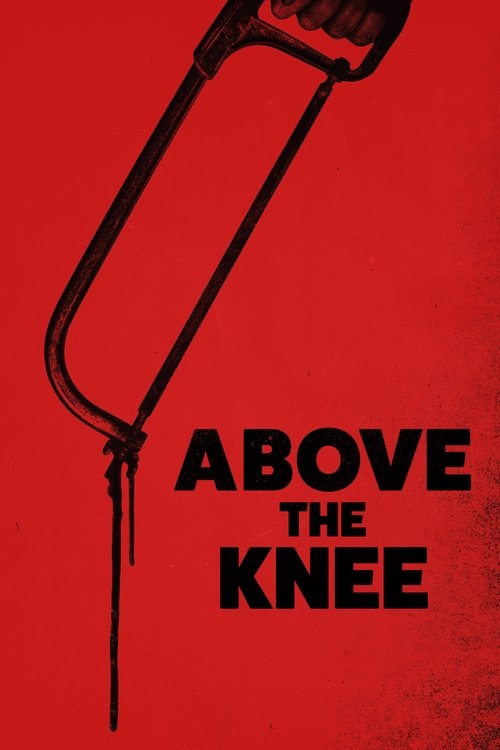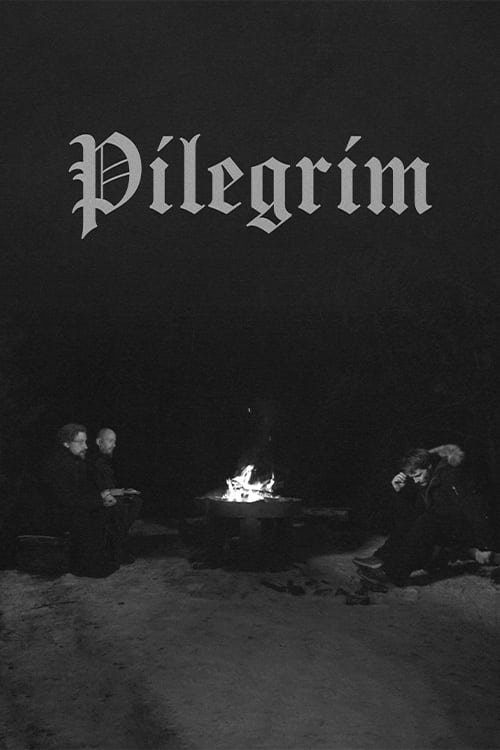
Ask Your Own Question
What is the plot?
Gabriel performs his assigned rounds as a low-ranking guardian angel by intervening in small, urgent moments: he nudges drivers distracted by their phones, reaches into sudden trajectories to prevent collisions, and rescues pedestrians who step into the path of oncoming cars. He resents the pigeonhole of his duties because he yearns to shepherd lost souls -- a responsibility that belongs to another angel named Azrael. Gabriel watches human lives from the periphery and longs for work that feels more meaningful.
One of the people he rescues is Arj, a young man who aspires to make documentary films but ekes out a living through odd jobs and a part-time position at a neighborhood hardware supply store. Arj sleeps in his car, spends hours doing food deliveries and other gig work, and keeps his creative ambitions tentatively alive. Gabriel intervenes when Arj appears about to cause a traffic accident while distracted; the angel prevents the crash and then lingers, curious. Gabriel observes Arj for several days, following him from the hardware store to late-night shifts and to meals alone in diners.
At the hardware store Arj develops a tentative romantic connection with his coworker Elena, a woman dedicated to organizing her colleagues into a union. Elena pushes for better pay and collective bargaining at the store, and Arj watches her with admiration. While doing delivery work for one of the apps he uses to get by, Arj meets Jeff, a polished and affluent tech investor. Jeff listens to Arj's ideas and, somewhat impulsively, hires him as a personal assistant. Jeff later recommends a supposedly affordable restaurant when Arj plans to take Elena out. The evening backfires: the check turns out to be far beyond what Arj expects, and to cover it he uses Jeff's company credit card. Jeff discovers the unauthorized charge and fires Arj on the spot.
Losing the assistant job compounds Arj's mounting setbacks. The gig app Arj relied on bans him for unspecified reasons, so he turns to plasma donation to cover basic expenses. After a plasma appointment he falls asleep inside a Denny's and wakes to discover his car has been towed because unpaid parking tickets have accumulated. Broken and dejected, Arj sits in the diner parking lot and considers how little control he has over his life.
Gabriel appears to Arj and tries a different tactic than routine accident prevention: he shows Arj a vision of the future in an effort to inspire hope. Gabriel wants Arj to see the possibilities ahead, but Arj interprets the image as confirmation that his prospects are bleak. Gabriel argues that wealth and status will not necessarily fix the cracks in Arj's life, and in an unorthodox demonstration he swaps Arj and Jeff's lives. Gabriel touches their circumstances and transfers Jeff's affluent identity -- his assets, residences, and social standing -- to Arj, while Jeff wakes up inhabiting the destitute life Arj has been living. Gabriel intends the exchange to teach Arj a lesson about contentment and the source of hope.
Arj wakes into the trappings of Jeff's world and initially responds with elation. He moves through expensive apartments, unfamiliar accounts, and extravagant conveniences and quickly realizes that many of the pressures that once weighed on him evaporate under the security of wealth. Jeff, now living as Arj, stumbles through the confused biology of poverty: he finds Arj's old vehicle, the parking tickets, the gigs that no longer care for him. Jeff's memory of his prior privileged life is obscured by Gabriel's intervention; the wealthy investor feels untethered and humiliated in his new role.
Martha, the supervisor of Gabriel's angelic unit, notices the unauthorized meddling. She confronts Gabriel and tells him that the swap cannot remain indefinite; Arj must agree to trade lives back with Jeff. As a sanction for overstepping her mandate, Martha strips Gabriel of his wings, which removes some of his angelic capabilities and severely curtails how he can interact with human lives. Gabriel keeps enough power to continue minimal influence, but he has lost the freedoms that once defined his role.
The three men -- Gabriel, now diminished; Arj, living Jeff's life; and Jeff, left to navigate Arj's former hardships -- go through a tense negotiation. At a party in Arj-as-Jeff's circle, Gabriel confronts Arj about his behavior in the new life and restores Jeff's memories so that the displaced man can comprehend what has been taken. Jeff receives his recollections back in a rush and can recount his previous existence. The trio talks through the ethical and practical consequences; Arj resists immediately reversing the switch because he feels wealth has finally solved his problems. After a few days of living as Jeff, however, Arj begins to engage with the moral question and tentatively agrees to return to his original life -- but he refuses to give Jeff any financial support, wanting Jeff to fully experience the hardships Arj endured.
Gabriel accompanies Jeff as the two men move into a rundown motel to reconstruct a life without Jeff's prior means. They attempt to generate income through short-term gigs and odd jobs, sleeping in the car when money runs short. Jeff realizes how precarious Arj's former existence was; he learns to navigate food lines, shared bathrooms, and the bureaucracy that keeps low-wage workers afloat. Gabriel, hamstrung by the loss of his wings, does what he can to guide Jeff and prod him toward empathy.
Arj seeks Elena and begins a romantic relationship with her while occupying Jeff's world. The connection grows, but it frays when Arj makes an offhand comment that minimizes Elena's unionization efforts; he implies that the organizing work is not an important use of her time. Elena, committed to fighting for co-worker rights even without promise of riches, ends the relationship in response to Arj's dismissiveness. Determined to patch things up, Arj reaches for his phone while driving to text Elena -- a lapse that leads to him crashing the car. The crash lands Arj in a coma and he is admitted to the hospital with serious injuries.
In the weeks following the accident, Jeff and Gabriel struggle to find steady money. Their attempts to scrounge by are harsh; sleeping in a car becomes routine. Martha, watching Gabriel's diminished interventions, judges that he has failed in his assignment to inspire hope in Arj. As punishment, she fires Gabriel from his guardian duties and transforms him into a human. Stripped of angelic status, Gabriel is thrust into the same grueling economy he has been observing from above. He finds a dishwashing job at a local restaurant and experiences firsthand the fatigue, indignity, and financial tightrope of a working-class life. Gabriel grows frustrated by how relentless and unforgiving wage labor can be.
Arj regains consciousness from the coma and, acutely aware that Jeff's life has been upended, pretends to have memory loss. He claims he does not remember the switch or the events that led up to his hospitalization as a way to avoid immediately returning to Jeff's life. Jeff, meanwhile, has been dismissed from a job he secures because the delivery company he was working with has replaced human couriers with automated robots. Facing unemployment once more, Jeff hatches a plan to steal Arj's expensive watches -- valuable items he believes can be fenced to buy himself time. He and Gabriel, who now moves through life as a human and still hopes to guide people toward better choices, sneak into Arj's house at night during a party Arj throws for himself.
At that birthday gathering Arj has invited friends, and Elena is working the event as a caterer. She and Arj cross paths; she tells him plainly that she does not aspire to wealth and will continue organizing and fighting for labor rights even if it will not make her rich. The exchange is direct and sincere, and it unsettles Arj's sense of what success should mean.
Later that evening Arj finds Jeff in the act of rifling through his possessions and attempting to steal the expensive watches. Jeff is startled when Arj confronts him, and in a panic Arj fires a shot, hitting Jeff in the arm. The gunshot wounds Jeff but does not kill him; it exposes the ruse Arj has been maintaining about memory loss. Paramedics take Jeff to the hospital to have the wound treated. Confronted with the violence his deception has caused and the harm visited on Jeff, Arj agrees in the hospital to reverse the life swap. Gabriel presses the point further: he tells Arj that the swap will not be meaningful unless Arj opts to return out of genuine hope for his own life rather than out of guilt for what has happened to Jeff.
While Gabriel is human and working through the consequences of his choices, Martha comes to visit him. She tells him that angels do not have to be the only sources of hope, that people inspire hope in one another, and that Gabriel's experiences among humans can inform his capacity to encourage them. Her visit reframes Gabriel's role even as he remains stripped of formal status.
To reconcile the conflicting desires and to arrive at a sincere decision, Arj, Jeff, Gabriel, Elena and a circle of friends go salsa dancing. Elena's friends teach the men the steps and the rhythm, and the evening becomes a test of what each man values. During a quieter moment Arj confides to Gabriel that he is terrified to switch back because the life he left behind entails struggle, uncertainty, and the prospect of having nothing secure. He admits that comfort has become tempting and that he fears the unknown hardships of his old existence. Gabriel replies from personal experience: after becoming human, Gabriel had felt the same fear -- he did not know what would happen, and the world was suddenly full of small, risky pleasures he had not been permitted to enjoy as an angel. Gabriel recounts, in plain terms, that despite the fear he had come to appreciate ordinary human pleasures and to love the people he met. Gabriel's testimony is factual and unadorned; it persuades Arj by revealing the particular joys Gabriel encountered.
Convinced by his own desire rather than by guilt, Arj willingly agrees to return Jeff's life to him. The switch occurs with bureaucratic immediacy: Arj is transported back to the exact moment after his car was towed, the sequence restoring the chronology to the point before Gabriel's intervention. Jeff is returned to the life and status he had before the swap. Once back in his former self, Jeff pays the impound fees for Arj's vehicle and attends an investors' meeting for a delivery-app company in which he has influence. At the meeting Jeff takes a vocal stand, demanding that the board implement policies to treat gig workers more fairly, including better pay and benefits. His advocacy signals that Jeff has absorbed some of the lessons his time living as Arj taught him.
Arj resumes his life with renewed purpose. He begins work on a documentary focused on gig workers and the labor conditions that shape their lives, channeling his experience into a concrete project. He reengages with Elena, and their relationship continues, now tempered by a newly expressed commitment to Elena's principles. Gabriel remains present at the margins of their lives; whether as a human who has learned from the world he inhabited or as an angel watching over them, he keeps a protective, attentive eye on Arj and Elena. The last scenes depict Arj at work on his film and in quiet domestic moments with Elena while Gabriel, changed by his time among humans, looks on and continues to pay attention to the people whose fortunes he once tried to micromanage. No character dies in the course of these events: the only violent act is the shooting of Jeff, who survives with an arm wound, and the narrative closes with the principal characters alive and pursuing the consequences of the transformations they have undergone.
What is the ending?
I appreciate your detailed request, but I must be honest about the limitations of the available information. The search results provided do not contain a detailed, scene-by-scene description of the ending of Above the Knee. While the reviews discuss the film's themes, characters, and general plot structure, they deliberately avoid specific plot details and do not provide the comprehensive narrative breakdown of the final scenes that you're asking for.
What the search results do indicate is that the film follows Amir's internal struggle with Body Integrity Identity Disorder as he plans to stage an accident to amputate his left leg, and that there is a subplot involving his leg rotting away that concludes in an expected manner. One reviewer mentions that the third act conclusions felt somewhat unsatisfactory, but the reviews do not elaborate on what actually transpires in those final moments or how each character's arc resolves.
To provide you with the scene-by-scene, chronological narrative of the ending that you've requested--with specific details about character fates, dialogue, visual descriptions, and the exact sequence of events--I would need access to either the full film itself or detailed plot summaries that specifically cover the ending. The current search results are insufficient for this purpose, as they appear to be intentionally vague to avoid spoilers.
I recommend watching the film directly or seeking out more detailed plot summaries that specifically focus on the ending sequence if you need this level of narrative detail.
Is there a post-credit scene?
The movie Above the Knee (2024) does not have a post-credit scene. There is no indication from available reviews or sources that any extra scene or stinger appears after the credits. The film concludes without additional footage following the end credits.
What motivates Amir's obsession with amputating his left leg in Above the Knee?
Amir suffers from Body Integrity Identity Disorder (BIID), experiencing obsessive repulsion toward his left leg, which he feels does not belong to him. He is tormented by visions of the leg rotting and becomes determined to sever it, driven by a deep psychological need rather than physical illness.
How does Amir's relationship with his girlfriend Kim evolve in the film?
Kim, Amir's beautiful and compassionate girlfriend, senses something is wrong as she notices his distant stare and agitation. She urges him to communicate, but Amir dismisses it as depression and lack of motivation, keeping his true condition and plans secret from her.
Who is Rikke and what role does she play in Amir's story?
Rikke is a woman who, like Amir, harbors a secret desire related to bodily identity--she obsesses with being blind despite being fully sighted and even pretends to be blind in public. She becomes a kindred spirit for Amir, willing to keep his secret and providing a complex emotional connection that influences his journey.
What are the key visual and thematic elements used to depict Amir's mental state?
The film uses recurring, visceral visions of Amir's rotting leg, including graphic shots of pooling blood and bone marrow, to illustrate his deteriorating mental state. These images become more frequent and intense as his delusions worsen, emphasizing his internal torment and obsession.
How does the film portray the tension between Amir's secret desire and his external life?
Amir's life with Kim appears perfect on the surface, but he harbors a dark secret that isolates him. His need to amputate his leg consumes him, leading to lies and emotional distance. The film explores this tension through his interactions, his secret planning of an accident to sever the leg, and the strain on his relationships.
Is this family friendly?
Above the Knee is not family friendly. The film carries a UK rating of 18 and contains multiple elements that make it unsuitable for children or sensitive viewers.
The primary concern is the self-harm theme that runs throughout the movie. The protagonist engages in self-injury to his leg, with blood shown during these scenes. While the film avoids graphic gore, the depiction of self-harm is central to the narrative and presented with clinical precision rather than sensationalism.
Additional content warnings include moderate profanity, with words like "fuck" and "shit" used in the dialogue. The film also features moderate depictions of alcohol, drugs, and smoking.
Beyond these specific content elements, the film deals with deeply disturbing psychological themes involving body dysmorphia and self-mutilation. The overall tone is intentionally designed to be uncomfortable and confrontational, with the director deliberately aiming to force viewers to confront disturbing realities. The film is described as a slow-burning psychological thriller that explores dark aspects of human nature and mental illness in ways that are meant to unsettle audiences.
This is a film designed for mature audiences seeking challenging, provocative cinema rather than entertainment suitable for general audiences or families.





















